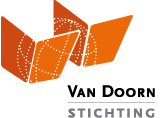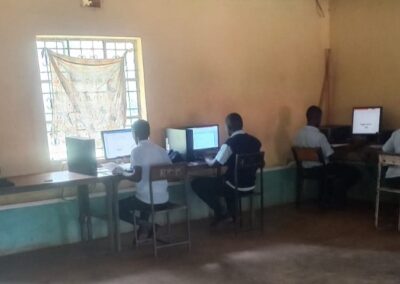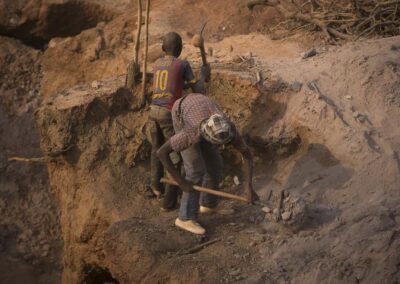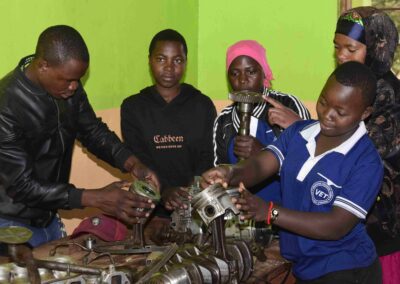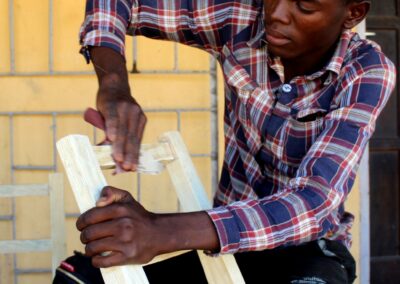ABEXINAH, a local, non-governmental and non-profit organisation, wants to teach underprivileged youngsters carpentry skills, so that they can earn a living after the training with the production and sale of furniture, start their own workshop and become self-reliant.
The project has been carried out in collaboration with the Tools To Work foundation from The Netherlands, which took care of the overhaul of (second-hand) machines and tools and their shipment to Uganda.
Project has successfully been executed
Amount donated: € 4.800,-
Sponsor: Aelbrechtsfonds
Project information
The situation
Kinyamaseke is located in the Kasese District in Eastern Uganda, on the border with the Democratic Republic of Congo. This area has had for years a large influx of Congolese refugees fleeing violence in their own country. The majority of these refugees are unaccompanied minors and juvenile victims of sexual and / or gender-related violence.
The rural population of the Kasese District itself is poor and the number of HIV infections, child marriages, teenage pregnancies and youth unemployment is very high. Parents have no money to send their children to school and many children drop-out from school due to poverty or the death of one of the parents. Poverty is caused by poor seasonal harvests and a lack of other activities that can generate income.
The importance of the project
ABEXINAH carried out a survey in 2014 to determine the actual cause of youth unemployment. It turned out that the young people who – mostly due to poverty – do not go to school, escape boredom in drugs and pickpocketing. They often leave their parental home and become street children with limited prospects for the future. However, the survey also showed a great interest among these young people to learn a trade and with it to generate an income.
These findings have been extensively discussed with the leaders of the local communities, which among other things led to the establishment of the centre. Community representatives are members of the board of trustees. Within ABEXINAH, maximum participation of all stakeholders is guaranteed and – partly as a result of this – the quality of the training courses.
The implementing organisation
The project is being carried out by ABEXINAH Orphans and Vulnerable Community Information Centre, a local, non-governmental and non-profit organization. ABEXINAH was founded in 2009 by five young men from the Kasese District who themselves had external support for their education and as a result were able to study at universities in the capital Kampala.
The mission of ABEXINAH is to break the hopelessness of orphans and other disadvantaged young people. They want to achieve this by enabling them to learn a craft (carpentry, tailoring, welding). This allows them to earn money by selling home-made products and eventually pay school fees and medical bills for other family members.
The training must change the lives of these vulnerable young people! ABEXINAH is convinced that survival and self-sufficiency can be achieved for them through vocational training. Given the high demand and the limited supply of good furniture and other carpentry products, it has been decided to start a carpentry course for high-quality products. The young trainees not only learn wood-work skills but also how to market their products and obtain purchase orders, so that good turnover and sustainability can be achieved.
Over the past three years, ABEXINAH has trained 110 young people (including 80 orphans), of which 1/3 in carpentry, 1/3 in tailoring and 1/3 in welding. The capacity of the centre is limited but the quality of the training is satisfactory.
The envisaged project results
The goal of ABEXINAH with this project is to provide (1) underprivileged young people with carpentry skills, so that they can earn a living after the training with the production and sale of furniture; (2) giving trained young people the opportunity to continue working in the workplace and do paid work; and (3) enabling young people to start their own carpenter’s workshop and become self-reliant.
In collaboration with Save the Children – who has been registering a number of orphans as pupils – and the Urban and Rural Advancement Foundation, successes have been achieved over the past ten years. But the facilities for carpenter training in particular which are small and with limited training equipment and tools, no more than 10 trainees can be trained per year. ABEXINAH wants to increase this capacity to around 30 trainees per year by adding a workshop to the current training centre. This should create space for a combination of training and internships in the workshop. Moreover, the centre can – by selling the products of the trainees – generate income for its activities and thus become more independent of sponsors.
The chance of sustainability
With support from the Van Doorn Foundation, ABEXINAH has drawn up a business plan for the centre and for several courses a learning plan. This is to ensure that the objectives can be achieved. The plan pays attention to the efficient functioning of the centre, the achievement of sustainability, the assurance of the quality of the programs and the recognition by the government.
The plan also provides that the training centre after a start-up period can operate completely independently financially. The training courses are practice-oriented and will yield products made by the trainees. The sale of these will serve as the largest source of income for the centre alongside the training fees of Organisations like Save The Children will pay for “her” trainees and any government subsidies. After the first year, the training centre can function financially independently.
The progress of the project
A new workshop has been constructed by ABEXINAH with the financial support of EU-can-aid. The woodworking machines and tools for the training were made available by the Tools To Work foundation from The Netherlands. The € 4,800 required for the overhaul of these (second-hand) machines and tools and the shipment thereof to Uganda were made available by the Aelbrechtsfonds.
The results
In the beginning of 2021, the shipment reached Uganda and a start could be made with setting up the training. The training in the new workshop with the additional equipment started mid-2021.
For these projects your support is necessary!
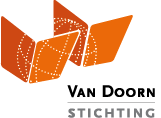
Bedankt!
Bedankt dat je wilt bijdragen aan dit project! Vul hieronder het formulier in en je wordt naar een iDeal pagina gebracht om de betaling te kunnen doen.
